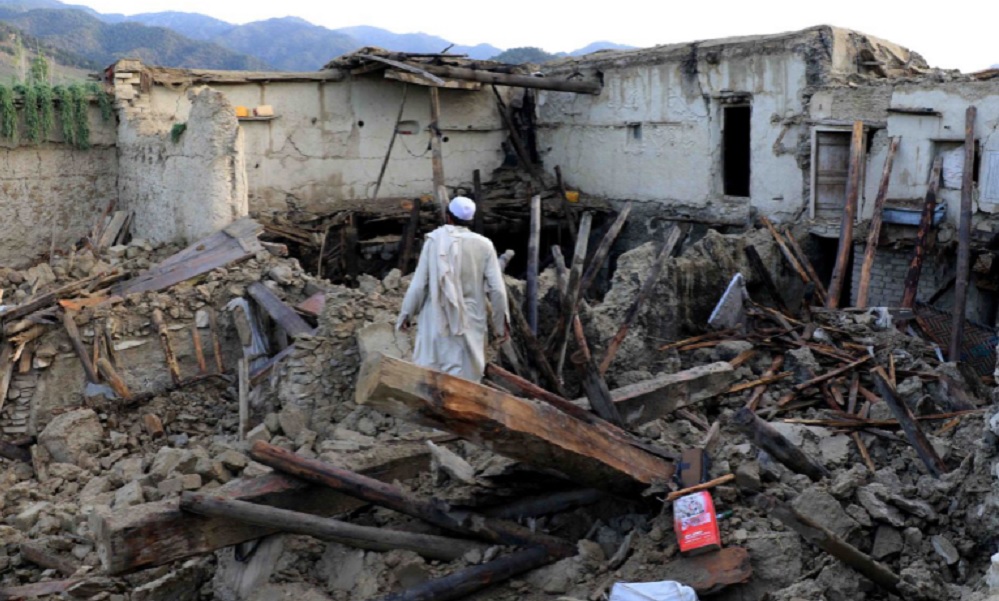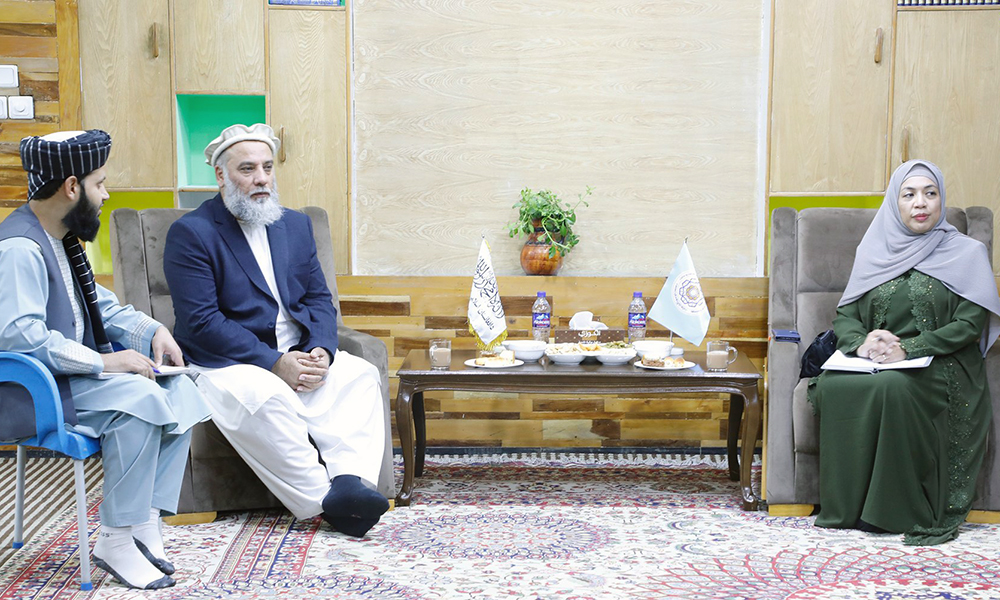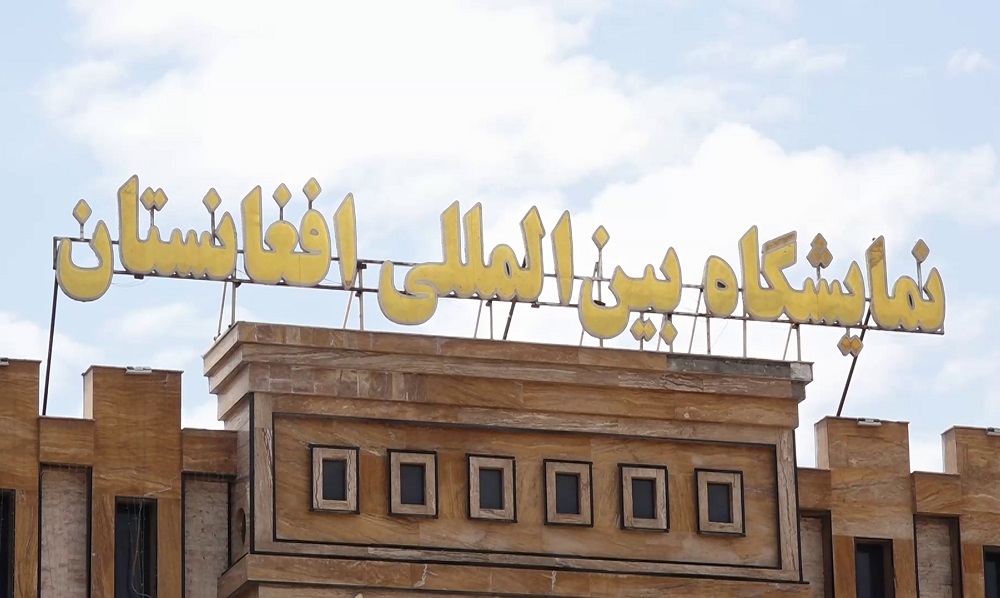Business
IEA calls for release of frozen funds following deadly earthquake

Afghanistan’s Islamic Emirate of Afghanistan (IEA) has called on international governments to roll back sanctions and lift a freeze on central bank assets following the earthquake that killed more than 1,000 people and left thousands homeless.
The 6.1-magnitude quake that struck the east of the country early on Wednesday destroyed or damaged 10,000 homes and injured about 2,000 people.
“The Islamic Emirate is asking the world to give the Afghans their most basic right, which is their right to life and that is through lifting the sanctions and unfreezing our assets and also giving assistance,” Abdul Qahar Balkhi, foreign affairs ministry spokesman, told Reuters in an interview.
While humanitarian aid continues to flow to Afghanistan, funds needed for longer-term development were halted when the IEA seized control of the country in August 2021 as foreign forces withdrew.
Billions of U.S. dollars in Afghan central bank reserves remain frozen overseas and sanctions hamper the banking sector as the West pushes for concessions on human rights.
Western governments are particularly concerned about the rights of women and girls to work under IEArule.
Asked about the issue, Balkhi said Afghans’ right to life-saving funds should be the priority, adding that the international community handled concerns over human rights differently depending on the country involved.
“Is this rule universal? Because the United States just passed an anti-abortion law,” Balkhi said, referring to the Supreme Court’s overturning on Friday of the landmark Roe v. Wade ruling that recognised a woman’s right to an abortion.
“Sixteen countries in the world have taken away the rights of religious minorities, especially Muslims … are they also facing sanctions because they are violating rights?,” he asked.
White House spokesperson Karine Jean-Pierre said on Saturday the U.S. government was working on “complicated questions about the use of these (frozen central bank) funds to ensure they benefit the people of Afghanistan and not the Taliban (IEA).”
Business
Azizi calls on Malaysian investors to invest in Afghanistan

Nooruddin Azizi, Acting Minister of Commerce and Industry, met with representatives from the ministries of foreign affairs, defense and interior of Malaysia, along with other senior officials, on Wednesday and called on Malaysians to invest in Afghanistan.
The visiting delegation is being led by senior diplomat Dr. Shazelina Zainul Abidin.
According to the IEA’s foreign ministry, the two sides discussed bilateral trade, holding a business communication conference to strengthen trade relations between the two countries, the trade balance between Afghanistan and Malaysia, and creating a market for Afghan products, including carpets, cotton, and minerals.
According to the ministry, at the end of the meeting, the Acting Minister emphasized the increase of investment from regional countries in Afghanistan and called on Malaysian investors to also invest in Afghanistan.
Business
Afghanistan starts exporting via railway to Turkey

The Ministry of Interior says that Afghanistan has started exporting goods to Turkey via the Herat-Khaf railway line.
In a post on X, the ministry said: “Afghanistan’s exports to Turkey started in a calm atmosphere through the Herat-Khaf railway line.”
The ministry added that one train will run daily for a month and then two trains will run daily.
According to the ministry, the security of Khaf-Herat railway line is provided by the guards of the National Public Protection Agency.
Khaf-Herat railway project not only connects Iran and Afghanistan by rail, but also completes a 2,000-kilometer route along the east-west rail corridor from China, through Uzbekistan, to Afghanistan, to Iran, and on to Turkey and Europe.
As a landlocked country, this railway network will provide a safe route to connect with Europe via Iran’s railway network and Iran’s southern ports.
This railway line is strategic for trade between Iran and Afghanistan and will allow six million tons of goods to be sent between the two countries.
Business
Afghanistan, Kazakhstan to hold joint expo in Kabul

A joint expo between Afghanistan and Kazakhstan will be held in Kabul in the next four days, officials said on Sunday.
Officials of the Ministry of Industry and Commerce said that the two-day expo will be held for the purpose of expanding and strengthening trade relations between the two countries.
“This expo will be held as a follow-up of the Kazakh-Afghan international expo, which was held in the city of Astana, Kazakhstan, with the participation of a large delegation of the government and the private sector of the Islamic Emirate of Afghanistan,” Abdulsalam Javad Akhundzadeh, the spokesman of the Ministry of Industry and Commerce, said.
“At this expo, domestic products from different sectors of Afghanistan and the Republic of Kazakhstan will be put on display for two days.”
According to officials, 40 large Kazakh companies, and 40 large Afghan companies will exhibit their products.
Mohammad Saber Latifi, head of the Afghanistan International Expo Center, said that fruits, minerals and commercial services will be displayed at the expo.
During the expo, various memorandums of understanding for the trade of goods are also expected to be signed by companies.
-

 World4 days ago
World4 days agoNorth Korea officials visit Iran in a rare public trip
-

 Sport4 days ago
Sport4 days ago‘Serious talent’ Fraser-McGurk bonds with Warner to light up IPL
-

 Latest News4 days ago
Latest News4 days agoOver 1,000 Afghan refugees forced out of Pakistan in one day
-

 Sport2 days ago
Sport2 days agoAfghanistan beat Iraq 5-3, inch closer to Futsal World Cup berth
-

 Regional2 days ago
Regional2 days agoNew UK sanctions target Iranian drone industry
-

 Regional3 days ago
Regional3 days agoTurkey accuses U.S. of double standards over Gaza in rights report
-

 Latest News2 days ago
Latest News2 days agoEU allocates 17 million euros to support Afghans on the move
-

 Latest News1 day ago
Latest News1 day agoPakistan extends registered Afghan refugees’ stay till June 30




























